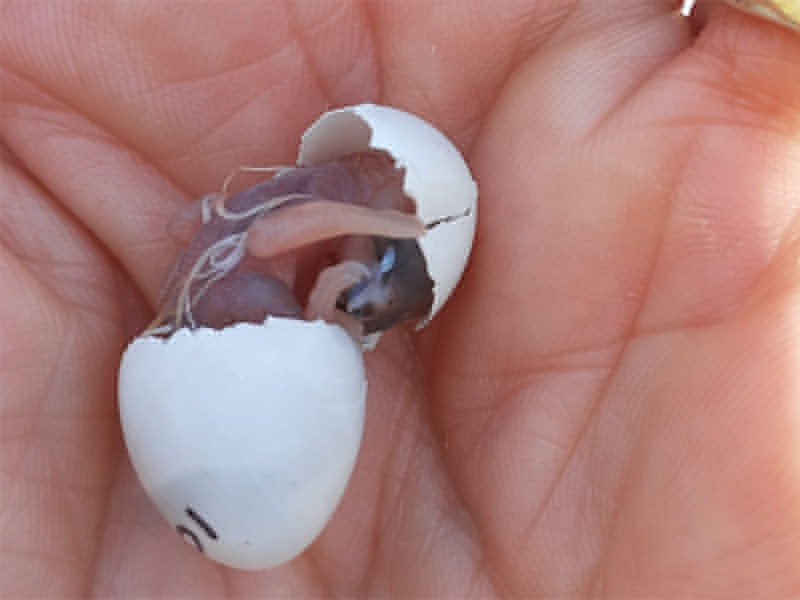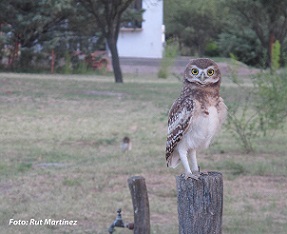A study with CSIC participation reveals for the first time that car noise harms individuals throughout their lifetime even years after exposure
Noise is everywhere. Whether in the city, in the countryside, or even in a national park, human-produced noise levels are high and continue to increase. Noise exposure has long been suspected to be detrimental to health, even during development, but it was unknown whether noise was directly harmful to young individuals. A new study published today in Science shows that traffic noise exposure in birds directly interferes with development, causing severe and long-lasting damage to individuals.
It was known that, in noisy environments, fewer bird eggs hatch, and the incidence of stillbirth in humans increases. But the effect of noise on the mother could not be separated from the effect on her offspring, because in all the studies, both the young and the parents were exposed to noise. This new study, led by Dr. Alizée Meillère and Dr. Mylene Mariette of the Doñana Biological Station (EBD-CSIC, Spain) and Deakin University (Australia), reveals for the first time that noise is harmful to the offspring, even when the mother is not exposed to noise.
It is possible to manipulate the embryos' experience without manipulating the mother, since bird embryos develop outside the mother's body and can be artificially incubated. Considering this, the scientific team exposed zebra finch eggs, an Australian bird, to sound. "We showed that, under optimal incubation conditions, eggs are less likely to hatch when exposed to traffic noise for five days before hatching than when exposed to the species' song," explains Meillère. Both traffic noise and singing were reproduced at the same moderate amplitude (65 dB, similar to the level of a conversation), but something in the acoustic characteristics of the noise caused embryonic death.
Impacts on chick growth and physiology
After hatching, the chicks were raised normally by the zebra finch parents. However, to expose the chicks to noise, without exposing the parents, the scientific team took the chicks overnight and exposed them to acoustic recordings in the absence of the parents.
Being exposed to noise at night during the chick stage also had a negative impact on growth and physiology. "Chicks exposed to noise grew worse and also showed more severe signs of cell damage than those exposed to song, such as more rapid shortening of telomeres, which are the protective ends of chromosomes," explains the researcher. These negative effects were the result of both previous exposure to noise before hatching and current exposure during the chick stage.
And these negative effects did not end when noise exposure ceased. Once the chicks left the nest, they were all reared together in an aviary and not exposed to any recording. One month after the end of exposure, the researchers remeasured the juveniles and found that the noise-exposed individuals were no longer smaller than their song-exposed siblings, but their physiological status had worsened. And even a year later, once the birds were adults, the cellular impact of the noise was still clearly visible.
Long-term consequences
Did it have that persistent impact on physiology? To find out, once the birds were adults, the scientific team gave them the opportunity to breed freely in aviaries, to see who was more successful. "The results were impressive. Finches exposed to noise before and after hatching produced only half as many young as those that never experienced traffic noise," says Dr. Mariette. "This was observed in young adults during their first breeding season, but also later in life, in mature adults."
This study reveals that noise directly and profoundly interferes with development, with lifelong consequences. One question that arises is why - what makes traffic noise so detrimental to developing youngsters? While an answer is not yet available, a synthesis by Dr. Mariette, published this month in the Journal of Experimental Biology, highlights how the brain is specifically designed to allow a direct impact of sound on physiology, and how even plants and cells are sensitive to sound and vibrations.
Possible impacts on other species and humans
"Whatever the mechanism, an impact of such magnitude on a songbird, which according to many researchers cannot hear sounds until a few days after hatching, is very worrisome," Mariette asserts "We may wonder what impact noise has on species whose embryos perceive sounds unambiguously. Among many other species, this includes humans, in which fetuses respond to external sounds in the last trimester of gestation."
In conclusion, this study sounds the alarm about the impact of noise pollution on biodiversity and highlights the urgent need for noise reduction measures, for the benefit of both humans and wildlife. Many solutions already exist. They include the use of electric vehicles in cities, maintaining trees and hedges along roadsides to act as a noise barrier, favoring freight transport by train over truck, but also simply keeping urban parks and gardens themselves quiet by avoiding noisy tools and especially leaf blowers.
Reference
A. Meillère, K.L. Buchanan, J.R. Eastwood & M.M. Mariette. Pre- and postnatal noise directly impairs avian development, with fitness consequences. Science, www.science.org/doi/10.1126/science.ade5868
M.M. Mariette. Developmental programming by prenatal sounds: insights into possible mechanisms. Experimental Biology, 227 (Suppl_1): jeb246696. doi: https://doi.org/10.1242/jeb.246696
Contact
outreach @ ebd.csic.es
https://doi.org/10.1242/jeb.246696


 Traffic noise causes lifelong harm to baby birds
Traffic noise causes lifelong harm to baby birds
